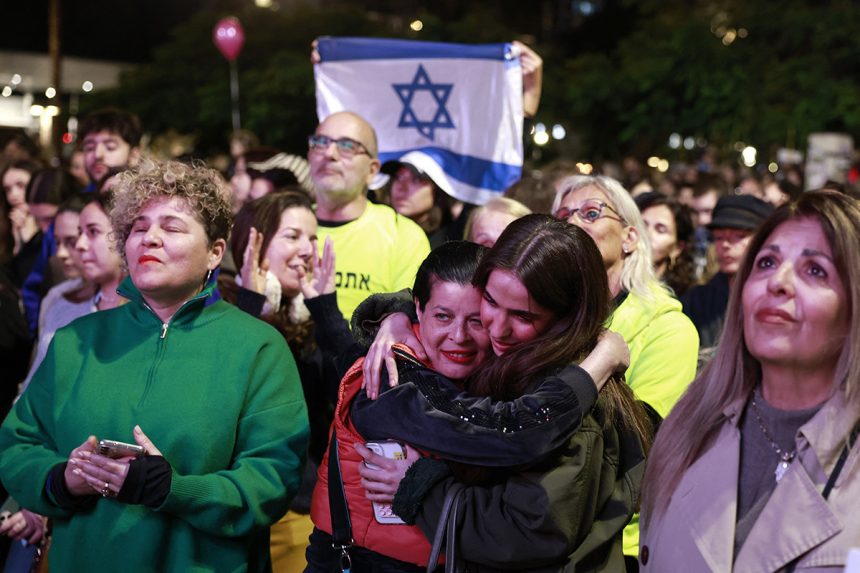
500 days.
500 days since Israel woke to sirens and slaughter.
500 days since terrorists stormed our homes, butchered families, burned children alive, and dragged the living into the dark.
500 days since the world watched and asked if Israel would survive.
I was born and raised in the United States. Never — not once — did I question my country’s survival. America was simply there, permanent, unshakable. There were threats, but never an existential one. Now I live in a country where survival is not a given.
Where, for 500 days, tiny Israel, the size of New Jersey, has been under attack from seven different fronts. And with every one of the thousands of rockets launched at our cities, suicide drones launched at our homes, and ballistic missiles launched at our children’s schools.
Where, for 500 days, we have lived with a single unbearable question: Will Israel endure? This is not a war over land; it is a war over existence. Our enemies have made it clear: they do not want peace; they want to erase us. They chant for our annihilation. They teach their children that Israel is temporary. They do not attack our borders; they attack our homes.
And so, for 500 days, we have buried our dead. We have searched the ruins. We have carried the weight of an unbearable absence — the hostages taken from us; their fate uncertain. We have endured rockets fired from every direction, the silence of those who should have stood with us, and the funerals of our soldiers, day after day after day.
Because after everything — after the massacres, the rockets, the graves — we are still here. Resilience is not just about surviving; it is about choosing to live, to love, to build, and to keep going even when the world tells us we should not exist.
And I think about my children. What does it mean to be a mother in a war like this, to raise children who do not know what it is to feel truly safe, who understand things no child should ever have to understand? They ask me questions I cannot answer. Will it always be like this? I do not know. But they also ask me questions that tell me exactly who they are. What can we do? And I know that is why Israel will survive. Because we do not ask whether we will make it; we ask how we will build.
For 500 days, we have not only fought; we have given. We have opened our homes. We have clothed and fed the survivors of the massacre. We have lifted each other up. This is what it means to be the Jewish people: to be hunted, to be wounded, and yet to rise; to plant, to create, to sing, to pray, to build a future even when others try to take it from us.
And we do this because we are not alone. For over 40 years, the International Fellowship of Christians and Jews has been built on that truth: on faith, on friendship, on an unshakable bond between those who believe in Israel’s right to exist, to flourish, to be a light. Jews and Christians standing together, giving together, praying together.
Enemies have tried to break us, to erase us, to silence us, but they have failed. Because when Jews and Christians stand together, there is no force on earth that can destroy us.
And so, I ask again: where do we stand? Exactly where we have always stood, on the edge of history, on the edge of survival, choosing life. Israel will live, Israel must live, and together we will make sure of it.
As President and CEO of The Fellowship, Yael Eckstein oversees all programs and serves as the international spokesperson for the organization. With over a decade of non-profit experience in multiple roles, Yael has the rare distinction of being a woman leading one of the world’s largest religious charitable organizations. In addition to her podcast exploring the Jewish roots of the Christian faith, Nourish Your Biblical Roots. Yael also invites thought-leaders, pastors, authors, and other influencers to discuss Israel and Jewish-Christian relations on Conversations with Yael. She is the 2023 recipient of the Jerusalem Post’s Humanitarian Award, and in 2020 and 2021, was named to the publication’s list of 50 Most Influential Jews. Born outside of Chicago, Yael is based in Israel with her husband and their four children.








